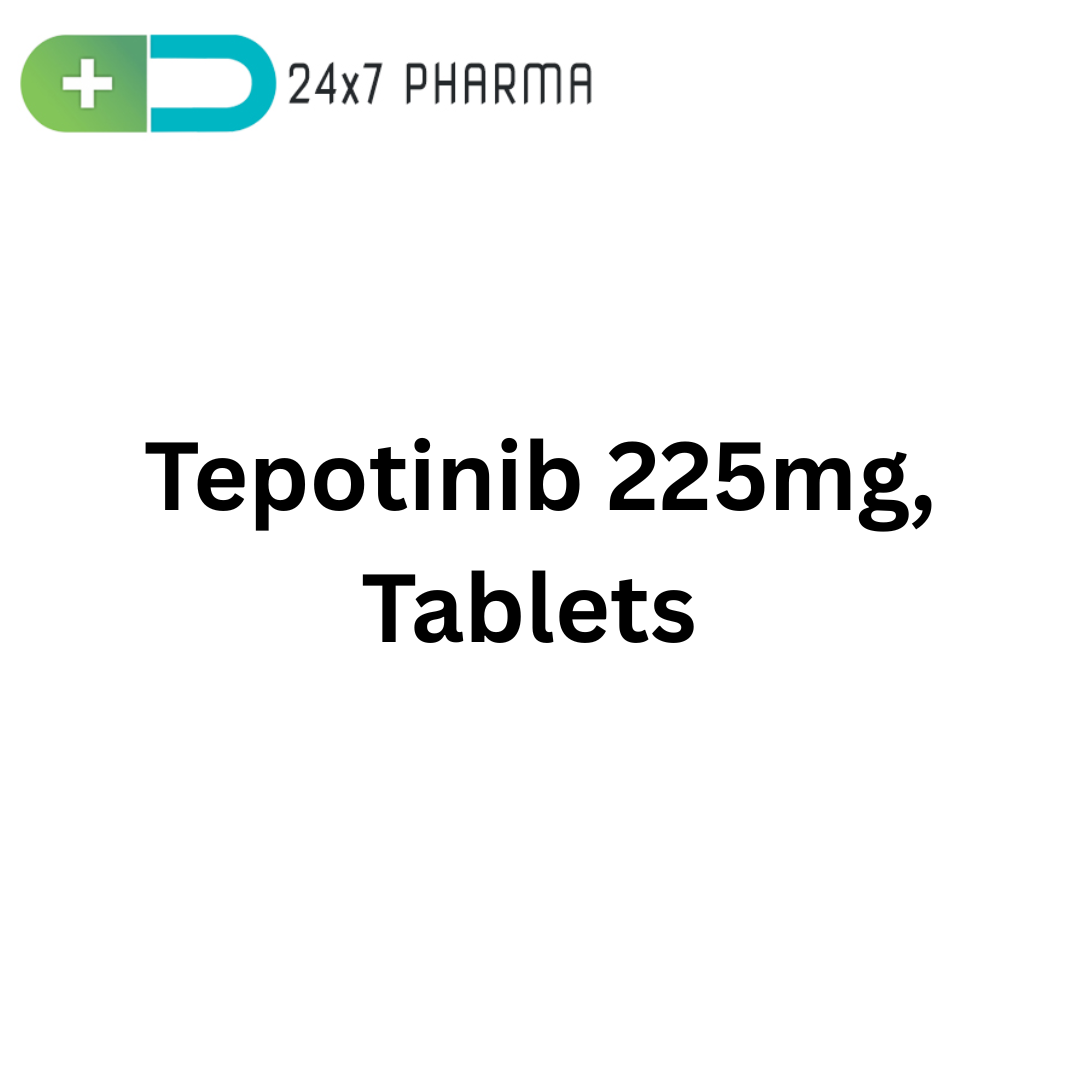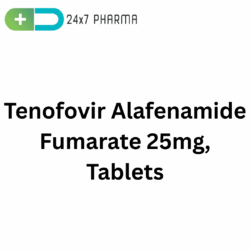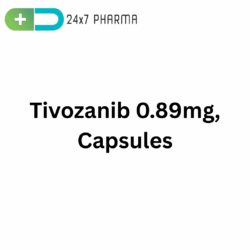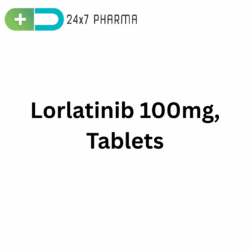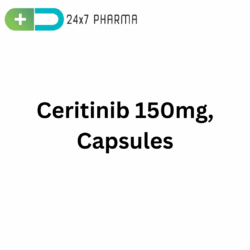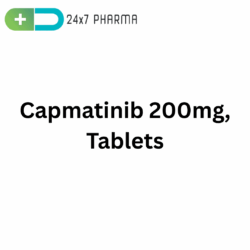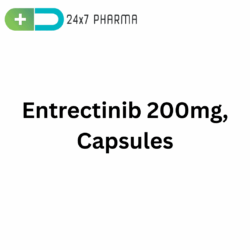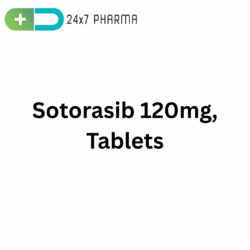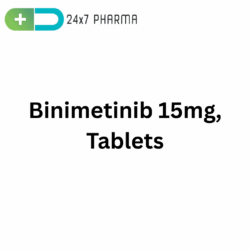LuciTepo 225mg, Tepotinib Tablets
Tepotinib is an ingredient in the targeted oral anticancer medicine LuciTepo 225mg, which is a member of the MET inhibitor pharmacological class. It is specifically designed to treat non-small cell lung cancer (NSCLC) with MET exon 14 skipping mutations—a genetic alteration that can drive cancer growth. As a precision therapy, Tepotinib is part of a growing movement toward personalized oncology, helping patients receive treatments tailored to their specific cancer genetics.
What is LuciTepo 225mg (Tepotinib)?
LuciTepo 225mg is a pharmaceutical formulation of Tepotinib, developed to treat adult patients with metastatic NSCLC whose tumors have alterations in the MET gene, particularly MET exon 14 skipping mutations. These mutations lead to overactivation of the MET pathway, promoting tumor progression, metastasis, and resistance to therapy.
Approved under accelerated programs in several countries, Tepotinib is an option for patients who have limited responses to conventional therapies.
How It Works / Mechanism of Action
Tepotinib is a MET tyrosine kinase inhibitor (TKI) that is selective. The MET gene encodes a receptor tyrosine kinase that regulates several cellular functions such as growth, survival, and motility. In some NSCLC cases, exon 14 skipping leads to increased MET activity due to impaired protein degradation.
By binding to the MET receptor, Tepotinib inhibits its autophosphorylation and downstream signaling cascades, particularly the PI3K/AKT, RAS/ERK, and STAT3 pathways. This inhibition results in:
- Reduced tumor cell proliferation
- Decreased survival of MET-dysregulated cancer cells
- Suppression of metastasis
- Tepotinib is a very good treatment for cancers that skip MET exon 14 because of this mechanism.
How to Use / Indications
Indications:
LuciTepo 225mg is indicated for:
- Patients with proven MET exon 14 skipping mutations may develop metastatic non-small cell lung cancer (NSCLC).
- Before initiating treatment, genomic testing is essential to confirm the presence of the MET mutation. This ensures that only eligible patients receive Tepotinib, improving treatment efficacy and avoiding unnecessary side effects.
How to Take / Dosage
Standard Dosage:
- It is advised to take two 225 mg pills with food for a dose of 450 mg once daily.
- Taking the dose with food enhances the bioavailability of the drug and ensures better absorption into the bloodstream.
Other Dosage Considerations
- Missed Dose: If a dose is missed, it can be taken as soon as remembered on the same day. Skip if it’s close to the next dose.
- Renal Impairment: Mild to moderate renal impairment does not require a change in dosage.
- Hepatic Impairment: In patients with moderate liver impairment, monitoring is recommended. Severe impairment requires caution.
- Elderly Patients: No specific dose adjustment needed, but close monitoring is advised due to potential organ function decline.
Side Effects
Like all medications, LuciTepo can cause side effects. The most commonly reported include:
Common Side Effects:
- Peripheral edema (swelling of hands/feet)
- Nausea
- Diarrhea
- Fatigue
- Increased liver enzymes (ALT, AST)
- Hypoalbuminemia
- Decreased appetite
Serious Side Effects:
- Interstitial lung disease (ILD): Rare but potentially fatal. Promptly report new or worsening respiratory symptoms.
- Increased liver enzymes indicate hepatotoxicity; routine liver function testing is advised.
- Electrolyte imbalances: For example, low potassium or sodium levels.
- QT interval prolongation: Heart rhythm disturbances in rare cases.
- Patients should be monitored routinely, especially during the initial phase of treatment.
Storage
- Store LuciTepo tablets at room temperature (15°C to 30°C).
- Keep in the original container, tightly closed, and away from moisture or direct sunlight.
- Keep out of reach of children and pets.
- Do not use expired medication.
Benefits
- Targeted Therapy: Specifically treats tumors with MET exon 14 skipping, offering a personalized and precise treatment.
- Oral Administration: Convenient once-daily dosing that improves patient compliance.
- Clinical Efficacy: Demonstrated durable responses and manageable safety profile in trials like the VISION study.
- Rapid Response: Many patients experience symptom relief within weeks.
- Better Quality of Life: Compared to traditional chemotherapy, patients often tolerate Tepotinib better, with fewer systemic toxicities.
Prescription
LuciTepo 225mg is a prescription-only medicine. It should be prescribed by an oncologist after:
- Confirming MET exon 14 skipping mutation via NGS or PCR.
- Assessing baseline liver function and pulmonary status.
- Reviewing patient’s medical history, comorbidities, and potential interactions.
Drug Interactions
Tepotinib is a substrate of P-glycoprotein (P-gp) and is metabolized by CYP3A4. Caution is needed when co-administered with:
CYP3A4/P-gp inhibitors (may increase Tepotinib levels):
- Ketoconazole
- Itraconazole
- Clarithromycin
- Ritonavir
CYP3A4 inducers (may decrease Tepotinib levels):
- Rifampin
- Carbamazepine
- St. John’s Wort
Other Interactions:
- QT-prolonging drugs: Additive cardiac risk.
- Antacids or PPIs: May alter drug absorption. Administer Tepotinib with food to minimize this.
- Liver enzyme inducers/inhibitors: Require close monitoring.
Always inform your healthcare provider of all ongoing medications, including herbal supplements.
FAQs
Is Tepotinib chemotherapy?
No, it’s a targeted therapy, not traditional chemotherapy.
Is genetic testing required before starting?
Yes, only patients with confirmed MET exon 14 skipping mutations are eligible.
Is it covered by insurance?
Coverage varies. Check with your insurance provider and ask about compassionate use programs.
Conclusion
LuciTepo 225mg (Tepotinib) represents a breakthrough in the treatment of NSCLC for a genetically defined patient group. As a highly selective MET inhibitor, it offers targeted, effective treatment with a manageable side effect profile. Its oral administration, precision targeting, and durable efficacy make it a promising option in the fight against advanced lung cancer. However, expert medical guidance, vigilant monitoring, and adherence to prescribed protocols remain essential for optimizing therapeutic outcomes.

